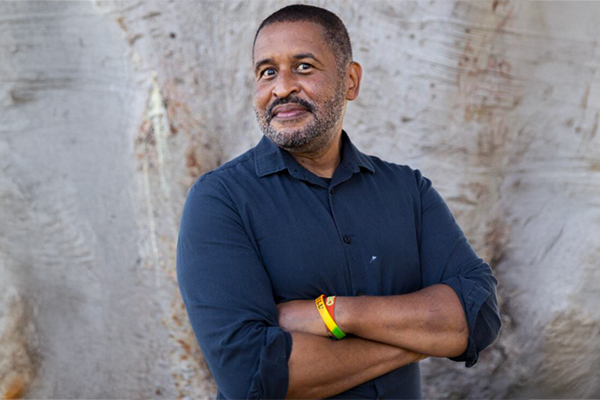 Emotional and mental support are essential during a patient’s medical journey. Whether it’s a family member undergoing surgery or a personal cancer diagnosis, the strength to heal often starts with being surrounded by compassion and care.
Emotional and mental support are essential during a patient’s medical journey. Whether it’s a family member undergoing surgery or a personal cancer diagnosis, the strength to heal often starts with being surrounded by compassion and care.
For Shawn, an L.A. Care member, that support made all the difference.
Shawn Griffin, a Detroit native now living in Los Angeles, was diagnosed with prostate cancer in April 2024 after noticing something unusual during a self-exam. The diagnosis brought back painful memories of his father's late-stage cancer and triggered deep anxiety.
“I had such a reaction that the urologist’s office wouldn’t even let me leave,” Shawn recalls. “They just wanted to make sure I was calm. I really appreciated that—I needed that time.”
Prostate cancer is the most common cancer among men in the United States and the second-leading cause of cancer-related death. The American Cancer Society states that one in eight men will be diagnosed with prostate cancer during their lifetime. They also share that Black men are disproportionately affected by prostate cancer; they have the highest incidence in the United States. Black men are also more likely to develop prostate cancer at almost every stage of the disease continuum and in every age group. In addition, the National Cancer Institute estimates that the per-person annual cost for prostate cancer medical services in its early stages is $28,108.
Through L.A. Care, Shawn found the care he needed without worrying about cost.
“They always said, ‘If you can’t make the copay, don’t worry. We just want to make sure you get treatment, so the cancer doesn’t spread.’”
What stood out most was how empowered and supported he felt. His oncologist walked him through every step of his six-week radiation treatment. The staff got to know him personally talking about weekend plans, cracking jokes, and checking in weekly on his physical and mental well-being.
“Even though I had to get up early every day, I kind of missed it after,” Shawn says. “The connection I made with the staff was just wonderful.”
Shawn leaned on his community, his spirituality, and the emotional tools he’d learned in therapy.
One lesson stuck with him: “I used to say I was lucky, but my therapist said, ‘No—you put in the work.’ And that’s true. I showed up. I did my part.”
Now nearly 62, Shawn’s dream is simple: to find meaningful work where he can help people and feel proud of the impact he makes. “At the end of the day, I just want to be able to say I did something that mattered.”